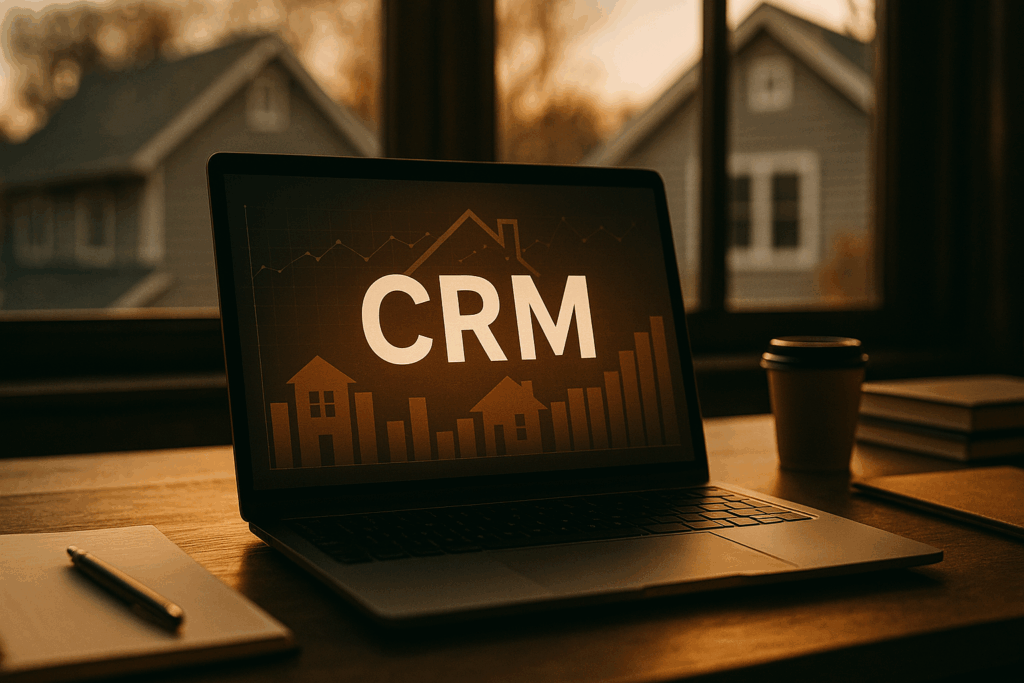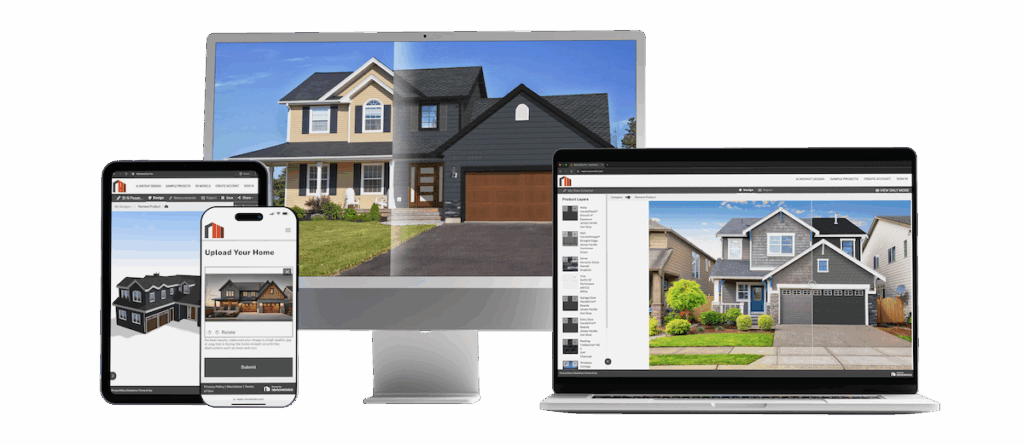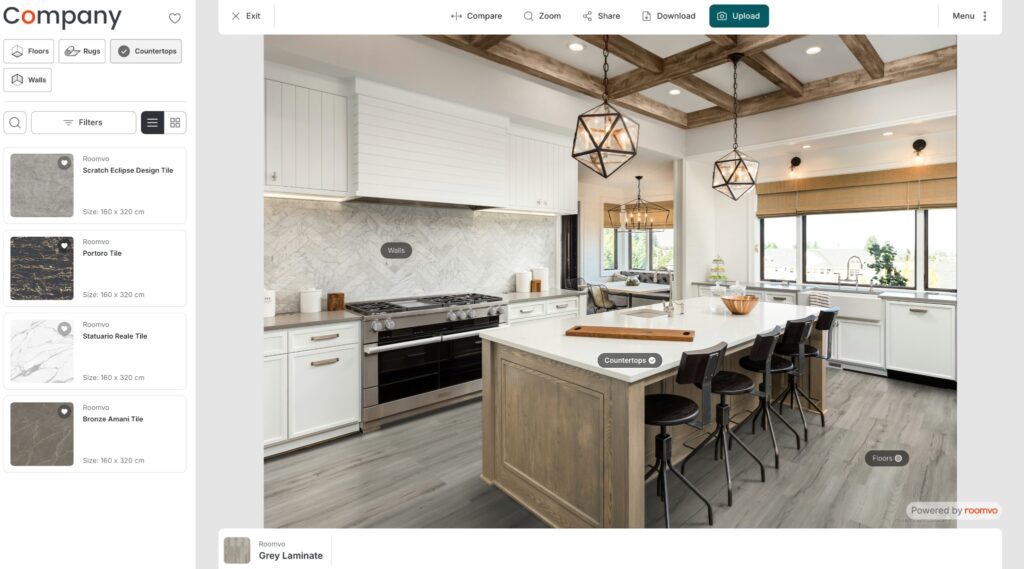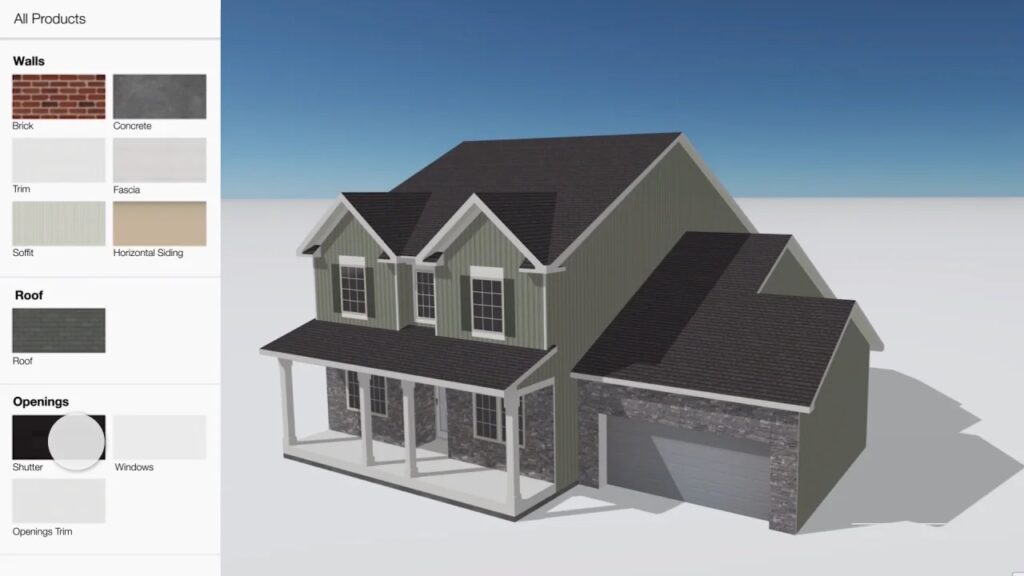TLDR
Choosing the right customer relationship management (CRM) platform can be a game-changer for any construction business. Whether you’re a general contractor, roofer, remodeler, or specialty tradesperson, the best CRM helps streamline workflows, manage bids, centralize client relationships, and keep your projects on track. This guide breaks down 20 of the best CRMs in the construction industry based on feature sets, integrations, customization options, and usability. We’ve included standout tools like monday CRM, Pipedrive, HubSpot CRM, and JobNimbus, all tailored to the unique demands of construction management.
Introduction
In today’s competitive construction and remodeling landscape, contractors can’t afford to rely on spreadsheets, disconnected apps, or scattered job notes. Whether you’re managing roofing jobs, coordinating subcontractors, or juggling bids for exterior renovations, a powerful customer relationship management (CRM) system is no longer optional—it’s essential.
The right CRM software helps you streamline lead tracking, automate follow-ups, win more jobs, and manage your construction pipeline from first inquiry to final walkthrough. But with so many platforms out there—some built for general sales teams, others tailored for contractors—how do you know which one is right for your business?
If you’re also exploring tools beyond CRMs, we’ve broken down the top 5 exterior design apps in 2025 and created detailed head-to-head comparisons of visualization platforms to help contractors see how the leading software stacks up. You can also dive deeper into growth strategies in our 2025 Digital Marketing Playbook for Contractors.
This guide breaks down the top 20 CRMs used by construction and exterior remodeling pros in 2025. We’ve evaluated each platform based on its strengths, trade-offs, and suitability for contractors in residential, commercial, and specialty trades. Whether you’re a solo remodeler or part of a multi-crew operation, you’ll find clear insights to help you choose the best-fit CRM for your workflow.

Why CRMs Matter in the Construction Industry
In a highly dynamic construction environment, CRM software does more than just track contacts. The best CRM platforms support everything from project management to estimating, invoicing, and subcontractor coordination. With rising competition and growing client expectations, contractors need tools that help them manage projects efficiently, close deals faster, and improve customer experience.
At-a-Glance Comparison Table
Listed below are 20 construction CRMs ranked by estimated user base. Each entry includes what the CRM is best for, its drawbacks, and a direct link to pricing.
| CRM Name | Estimated User Rank | Best For | Cons | Pricing Link |
|---|---|---|---|---|
| Salesforce | #1 (Over 327K enterprise customers, ~21%) | Enterprise construction companies | Expensive, requires expert admin setup | View Pricing |
| Zoho CRM | #2–3 (One of the largest global vendors) | Mobile access and scalable solutions | Complex setup, some modules sold separately | View Pricing |
| HubSpot CRM | #2–3 (~180K companies; strong SMB presence) | All-in-one sales and marketing CRM | High cost at upper tiers, limited project tools | View Pricing |
| Pipedrive | #4 (~100K companies) | Sales tracking and deal closure | Lacks built-in estimating, no free plan | View Pricing |
| monday CRM | #5+ (Rapid growth; smaller market share) | Custom workflows and automation | Requires three-user minimum, limited native bid tools | View Pricing |
| Procore | Significant (10K+ customers; 2M+ users) | Construction management integration | Expensive for small teams, learning curve | View Pricing |
| BuilderTrend | Major adoption in residential construction | End-to-end construction workflows | Higher pricing, can be overwhelming for small teams | View Pricing |
| CoConstruct | Popular in homebuilding | Custom home builders | Being absorbed into BuilderTrend, may lack updates | View Pricing |
| Jobber | Strong in field services | Field service and job tracking | Not ideal for complex sales pipelines | View Pricing |
| JobNimbus | Niche user base | Mobile contractors | Pricing not transparent, lacks robust marketing tools | View Pricing |
| Followup CRM | Niche user base | Sales performance and bid management | Best for sales only, less focus on project delivery | View Pricing |
| Contractor Foreman | Niche user base | All-in-one project and client management | UI not as modern, some features gated by plan | View Pricing |
| Builder Prime | Niche user base | Automating workflows | Less known, fewer third-party integrations | View Pricing |
| Pipeline CRM | Niche user base | Sales-centric teams | Limited construction-specific features | View Pricing |
| Capsule CRM | Niche user base | Simplicity and mobile teams | Limited advanced features, light reporting | View Pricing |
| MarketSharp | Niche user base | Remodelers and specialty trades | Outdated interface, limited mobile functionality | View Pricing |
| Knowify | Niche user base | Cost management | UI takes getting used to, few CRM marketing tools | View Pricing |
| UDA ConstructionSuite | Niche user base | Full lifecycle project management | Desktop-based, not as modern/cloud-native | View Pricing |
| Nimble | Niche user base | Simple CRM needs | Not industry-specific, lacks estimating tools | View Pricing |
| CRM Runner | Niche user base | Field service CRM | Limited integrations, UI can be clunky | View Pricing |
The Best CRMs for Contractors in 2025
1. Salesforce
Salesforce is a powerhouse CRM platform built for scalability, integration, and enterprise-grade customization. Construction businesses with complex sales cycles and multiple departments can benefit from its robust reporting tools and automation features. With over 327,000 enterprise users, it’s considered the gold standard across industries—including large-scale construction.
However, Salesforce comes with a steep learning curve and can be costly, especially for smaller contractor teams. Implementation typically requires admin expertise or third-party consultants.
Strengths: Enterprise customization, strong reporting tools, integrations
Cons: Expensive, requires expert setup
Ideal for: Large construction firms managing multi-phase commercial projects
Best for: Enterprise construction companies
Key features: AI forecasting, sales pipelines, dashboards
Standout: Unmatched customization and third-party integration
2. Zoho CRM
Zoho CRM is a versatile platform suitable for both small and growing construction businesses. It offers a balance of affordability and capability, with automation, mobile access, and integrations with tools like QuickBooks. Construction teams that manage bids, estimates, and on-the-go sales can benefit from its flexibility.
The setup process can feel overwhelming for users new to CRM platforms, and several features are sold as separate modules, which adds cost.
Strengths: Budget-friendly, mobile-ready, scalable features
Cons: Add-ons needed for full functionality, setup complexity
Ideal for: SMB contractors scaling their operations
Best for: Mobile access and scalable solutions
Key features: Workflow automation, reporting tools, sales pipelines
Standout: Strong estimate and invoice capabilities
3. HubSpot CRM
HubSpot CRM excels in combining marketing, sales, and customer service tools in a unified dashboard. For construction companies investing in lead generation and client nurturing, HubSpot’s automation and email tools are top-tier. Its free plan is also unmatched in the CRM space.
However, while it offers excellent marketing CRM features, construction-specific workflows and estimating tools may require workarounds or integrations.
Strengths: Free plan, user-friendly UI, strong automation
Cons: Expensive at scale, lacks project-specific tools
Ideal for: Contractors focused on inbound leads and client communication
Best for: All-in-one sales and marketing CRM
Key features: AI tools, email marketing, estimate generation, project tracking
Standout: Free tier with extensive functionality
4. Pipedrive
Pipedrive is one of the most intuitive CRMs available for construction companies that prioritize deal management and sales pipeline visibility. Contractors can visually manage leads, automate follow-ups, and forecast close probabilities, making it a great fit for teams focused on selling services and tracking job wins.
However, Pipedrive isn’t built specifically for the construction industry. It lacks built-in estimating tools and requires integrations or external tools for proposals and invoicing.
Strengths: Visual pipelines, ease of use, sales automation
Cons: No built-in estimating, limited construction-specific tools
Ideal for: Contractors focused on client acquisition and deal tracking
Best for: Sales tracking and deal closure
Key features: Smart Docs, automation, customizable fields
Standout: Excellent value for small to midsize construction businesses
5. monday CRM
monday CRM offers unmatched flexibility with its drag-and-drop workflows, making it ideal for construction businesses managing multi-phase projects. You can tailor dashboards for job progress, subcontractor assignments, or customer communication. The mobile app is strong, and integrations with tools like Slack and Google Drive boost team collaboration.
Its pricing requires a three-user minimum and the learning curve is steeper for those new to custom workflows.
Strengths: Customizable workflows, real-time updates, team collaboration
Cons: Minimum seat pricing, limited built-in estimating
Ideal for: Mid-sized construction companies needing flexibility and collaboration tools
Best for: Custom workflows and automation
Key features: Task assignment, centralized dashboards, integration with construction management tools
Standout: Great mobile usability for on-site updates
6. Procore
Procore is a dedicated construction management platform with a built-in CRM module. It’s ideal for larger firms managing complex projects across multiple job sites.
Best for: Construction management integration
Key features: Contact tracking, project management, subcontractor management
Standout: Seamless sync between CRM data and job schedules
7. BuilderTrend
BuilderTrend merges CRM and construction management features in one platform. It helps construction companies estimate costs, schedule crews, and track progress.
Best for: End-to-end construction workflows
Key features: Job scheduling, budgeting, subcontractor coordination
Standout: Built specifically for construction businesses
8. CoConstruct
Now a part of BuilderTrend, CoConstruct focuses on remodeling and home building. Its CRM functionality supports pre-sales activity, bid generation, and project collaboration.
Best for: Custom home builders
Key features: Budgeting, client communication, proposal generation
Standout: Powerful pre-construction tools
9. Jobber
Jobber is tailored for contractors and remodeling professionals. It simplifies client communication, quoting, and invoicing while offering solid job tracking tools.
Best for: Field service and job tracking
Key features: CRM, estimates, invoicing, real-time updates
Standout: Centralized client management
10. JobNimbus
JobNimbus is a mobile-first CRM with project management features for contractors, especially in roofing and remodeling. It supports document management, job costing, and integrates with QuickBooks.
Best for: Mobile contractors
Key features: Estimate tools, invoice management, real-time tracking
Standout: Tailored to the needs of the construction industry
11. Followup CRM
Designed for construction sales teams, Followup CRM emphasizes bid tracking and sales rep performance. It offers forecasting tools and workflow templates.
Best for: Sales performance and bid management
Key features: Automated follow-ups, CRM dashboards, integrations
Standout: Built by contractors, for contractors
12. Contractor Foreman
Contractor Foreman provides a comprehensive suite of tools including a CRM, document storage, time tracking, and more. It’s ideal for general contractors looking to centralize operations.
Best for: All-in-one project and client management
Key features: Estimates, bids, subcontractor tools, reporting
Standout: Affordable pricing with broad functionality
13. Builder Prime
Builder Prime offers automation and CRM tools to help contractors manage leads and jobs. It includes project management, estimate tools, and integrations with accounting software.
Best for: Automating workflows
Key features: Customizable pipelines, estimate tools, client tracking
Standout: Purpose-built CRM software for construction
14. Pipeline CRM
Pipeline CRM offers intuitive visual sales tracking and is particularly useful for builders and remodelers handling multiple concurrent leads.
Best for: Sales-centric teams
Key features: Custom pipelines, reporting tools, automation
Standout: Focused on construction lead management
15. Capsule CRM
Capsule CRM is lightweight, mobile-friendly, and ideal for small to midsize construction companies. Its project management tools allow contractors to organize tasks and collaborate easily.
Best for: Simplicity and mobile teams
Key features: Task tracking, mobile app, contact organization
Standout: Easy integration with project management software
16. MarketSharp
MarketSharp focuses on contractors and remodelers, offering CRM, marketing automation, and project tracking in one platform.
Best for: Remodelers and specialty trades
Key features: Lead management, automation, project workflows
Standout: Built specifically for the construction industry
17. Knowify
Knowify helps contractors manage bids, estimates, invoicing, and integrates tightly with QuickBooks. It’s ideal for teams that want real-time visibility into job costing.
Best for: Cost management
Key features: Bid tracking, invoice tools, QuickBooks integration
Standout: Real-time financial visibility
18. UDA ConstructionSuite
This is a full construction management software suite with integrated CRM features. It includes robust scheduling, estimation, and contact tracking.
Best for: Full lifecycle project management
Key features: Project scheduling, CRM, estimating, reporting tools
Standout: Centralizes all business operations
19. Nimble
Nimble is a lightweight CRM that integrates well with Microsoft 365 and Google Workspace. While not construction-specific, it’s a good fit for small contractor teams.
Best for: Simple CRM needs
Key features: Contact syncing, sales pipelines, task tracking
Standout: Fast setup and clean interface
20. CRM Runner
CRM Runner offers project tracking, estimate tools, and customizable dashboards. It’s best for teams looking for CRM software with built-in field service tools.
Best for: Field service CRM
Key features: Project management, invoicing, team tracking
Standout: Geolocation and real-time updates for job sites
CRM Runner offers project tracking, estimate tools, and customizable dashboards. It’s best for teams looking for CRM software with built-in field service tools.
Best for: Field service CRM
Key features: Project management, invoicing, team tracking
Standout: Geolocation and real-time updates for job sites
What to Look for in a Construction CRM
Customization: Choose a CRM that allows customizable fields, workflows, and reports.
Integration: Look for tools that integrate project management and accounting platforms like QuickBooks.
Automation: Automate repetitive tasks like follow-ups, estimate approvals, and project reminders.
Estimate Tools: Ensure your CRM supports quotes, bids, and detailed proposals.
Project Management: Opt for platforms that help you manage projects from initial contact through closeout.
Reporting Tools: Use dashboards to gain insight into your sales process, job profitability, and team performance.
CRM Trends Shaping Construction in 2025
The landscape of construction CRM software is rapidly evolving, with trends like AI-driven automation, cloud-based project management, and mobile-first platforms taking center stage. In 2025, more contractors are leveraging CRMs not just for sales tracking, but for everything from subcontractor coordination and digital estimating to customer experience management. With rising client expectations and tighter margins, the most competitive construction companies are investing in CRM systems that offer workflow automation, real-time communication, and seamless integrations with accounting software. Whether you’re in residential remodeling or large-scale commercial contracting, staying ahead means choosing a CRM platform that evolves with your construction business.
Final Thoughts
In 2025, the construction industry continues to demand tools that help contractors move faster, serve clients better, and win more jobs. The best CRM software is one that centralizes communication, supports your project workflows, and integrates seamlessly with your tech stack. Whether you’re a growing construction company or a solo contractor, there’s a CRM system on this list that can support your needs, streamline your operations, and help you grow profitably.
FAQ
1. What is the best CRM for general contractors?
Procore and BuilderTrend are top choices for general contractors. They offer full project lifecycle tools, including estimating, scheduling, client management, and subcontractor coordination.
2. Which CRM is best for small construction businesses?
JobNimbus, Capsule CRM, and Builder Prime are great for small contractors thanks to their ease of use, affordability, and job-specific features like mobile access and estimate tracking.
3. Are there CRMs built specifically for the construction industry?
Yes. CRMs like BuilderTrend, JobNimbus, CoConstruct, Builder Prime, and Contractor Foreman are designed with construction workflows in mind, including estimating, job costing, and project scheduling.
4. Do construction CRMs integrate with QuickBooks or Xero?
Most leading CRMs like Knowify, JobNimbus, and Zoho CRM integrate with accounting software such as QuickBooks, helping contractors sync estimates, invoices, and financial reports.
5. What’s the difference between a construction CRM and general CRM software?
Construction CRMs offer project-specific features like job tracking, bid management, estimating tools, and subcontractor scheduling—features general CRMs often lack without add-ons.
6. Is there a free CRM for contractors?
Yes. HubSpot CRM offers a free tier suitable for early-stage contractors focused on lead management and client communication. However, estimating and project tools may require paid upgrades or integrations.
7. Which CRM is best for field service contractors like HVAC or electricians?
Jobber, CRM Runner, and Nimble are lightweight, mobile-first CRMs ideal for field contractors who need to track jobs, dispatch crews, and manage customer communications on the go.
8. Can CRMs help with bid and proposal tracking?
Absolutely. Followup CRM, Salesforce, and BuilderTrend all include tools for managing bids, deadlines, and proposal stages—critical for commercial and government contractors.
9. How much does construction CRM software cost?
Pricing varies widely. Some CRMs start at $20–$30 per user/month (like Pipedrive or Zoho CRM), while more comprehensive platforms like Procore or BuilderTrend can cost hundreds monthly depending on features and user count.
10. Do I need separate tools for project management and CRM?
Not necessarily. Many construction CRMs (e.g., BuilderTrend, CoConstruct, Contractor Foreman) combine project management and CRM tools in one platform, reducing the need for multiple subscriptions.







